Storici Lab
Welcome to the Storici Lab!
School of Biological Sciences, Georgia Tech
We are interested in elucidating mechanisms of DNA recombination and repair and developing approaches for genetic engineering and gene targeting.
A major focus of our lab's research is to understand the relationship between RNA and DNA in genome stability/instability and DNA modification.
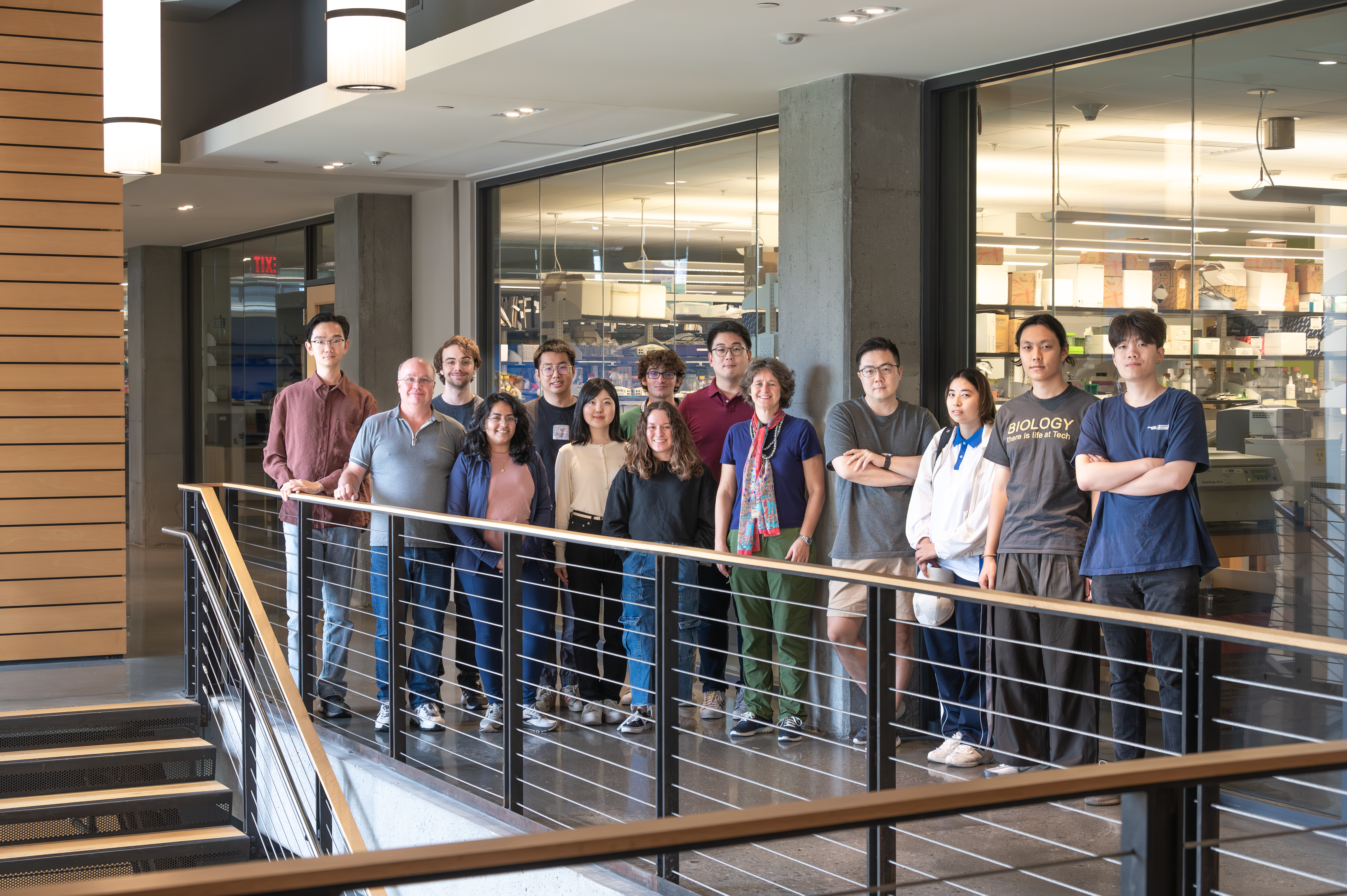 Storici Lab, Fall 2024
Storici Lab, Fall 2024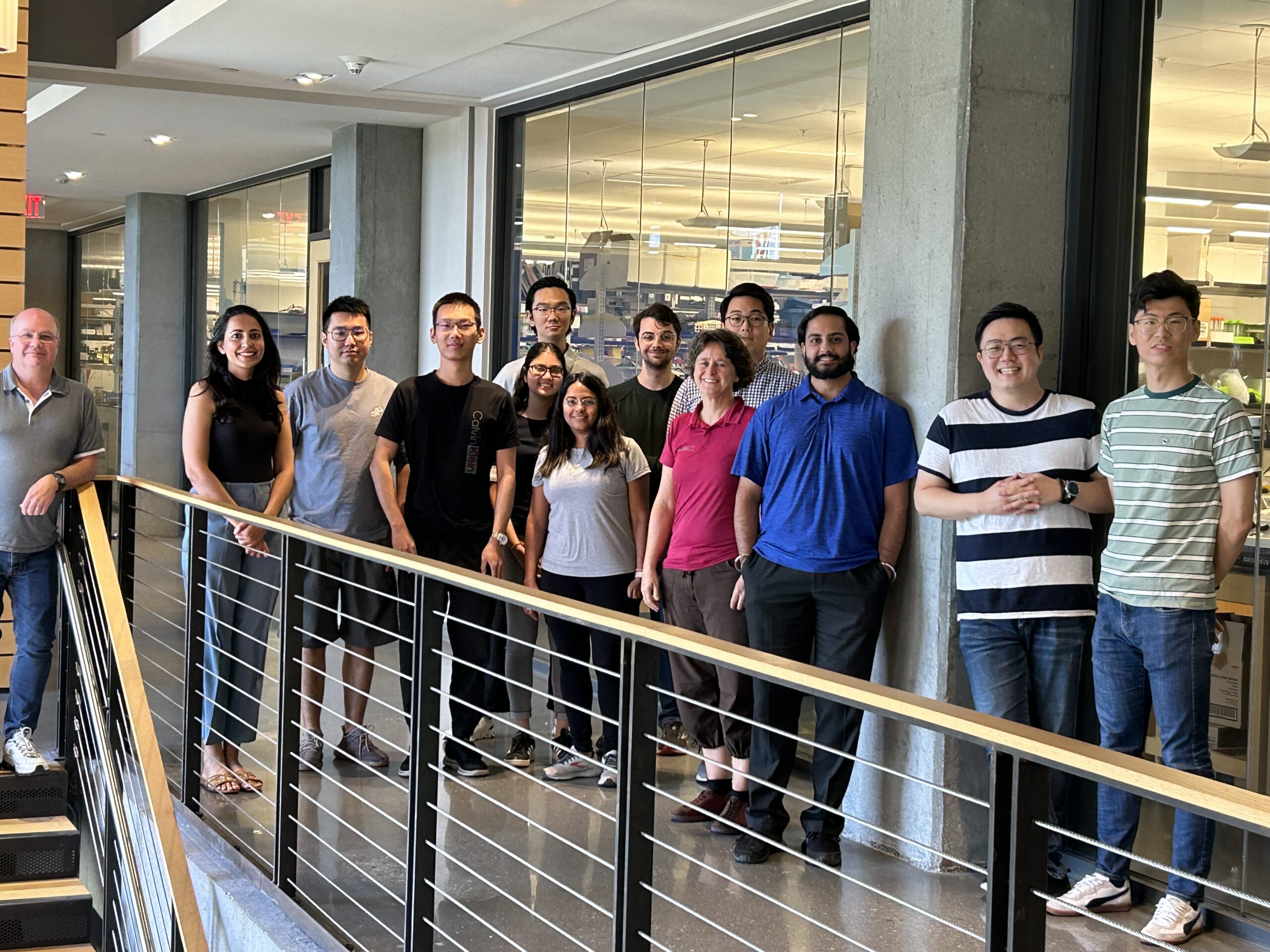 Storici Lab, Fall 2023
Storici Lab, Fall 2023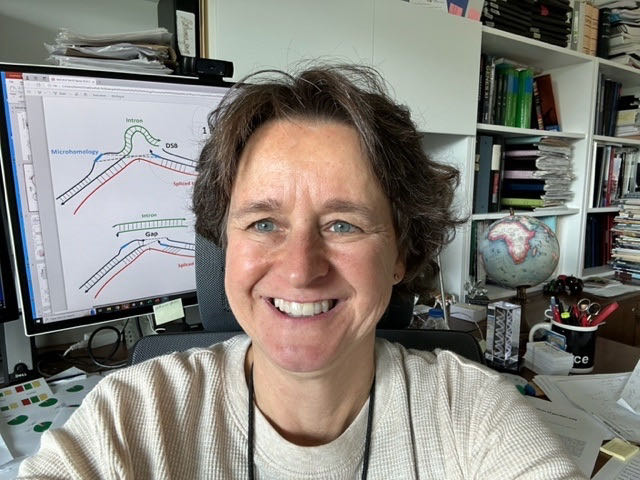 Congrats to Francesca Storici for being named Tom and Marie Patton Distinguished Professor!
Congrats to Francesca Storici for being named Tom and Marie Patton Distinguished Professor!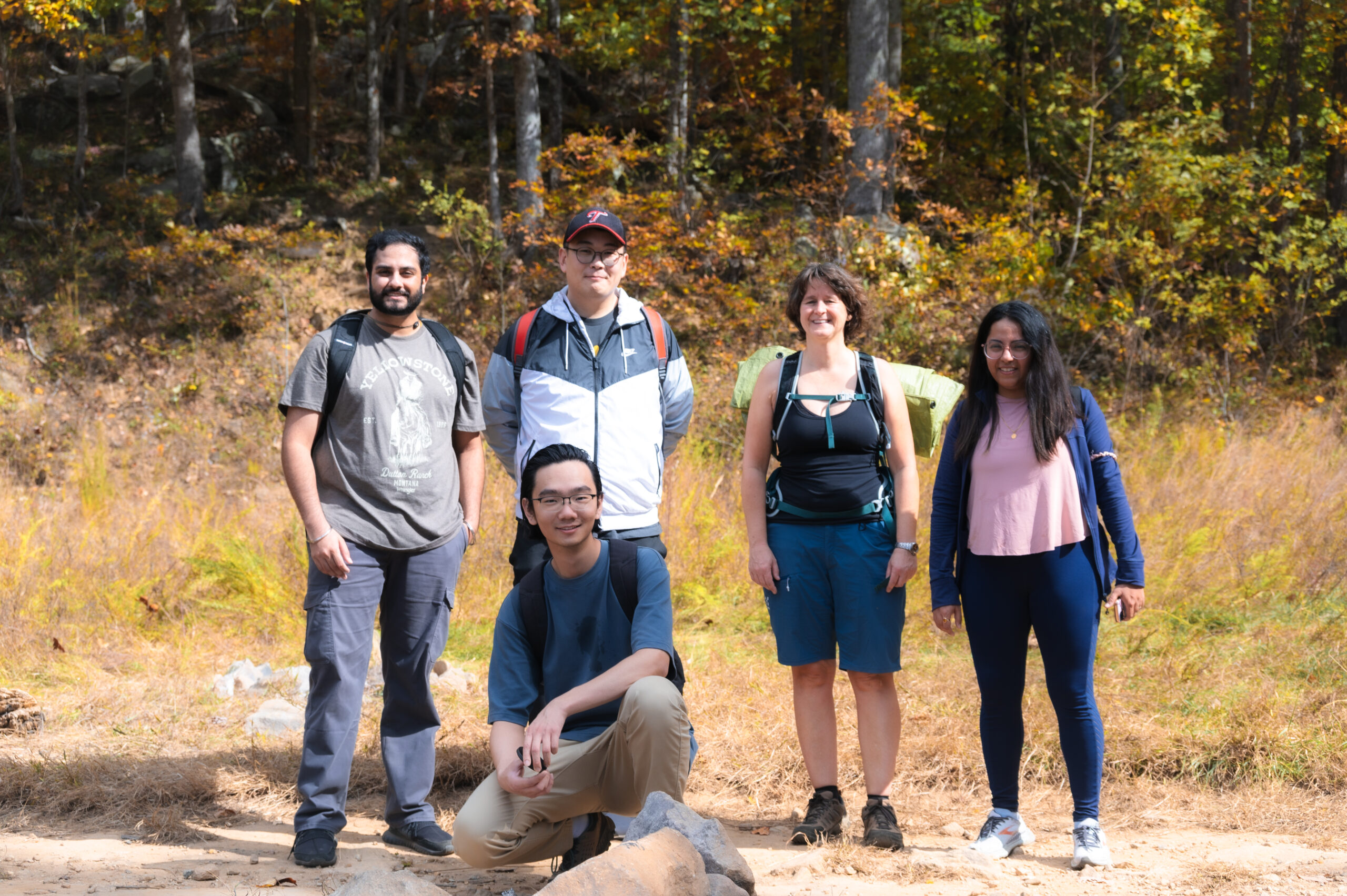 Storici Lab travel day, Fall 2023
Storici Lab travel day, Fall 2023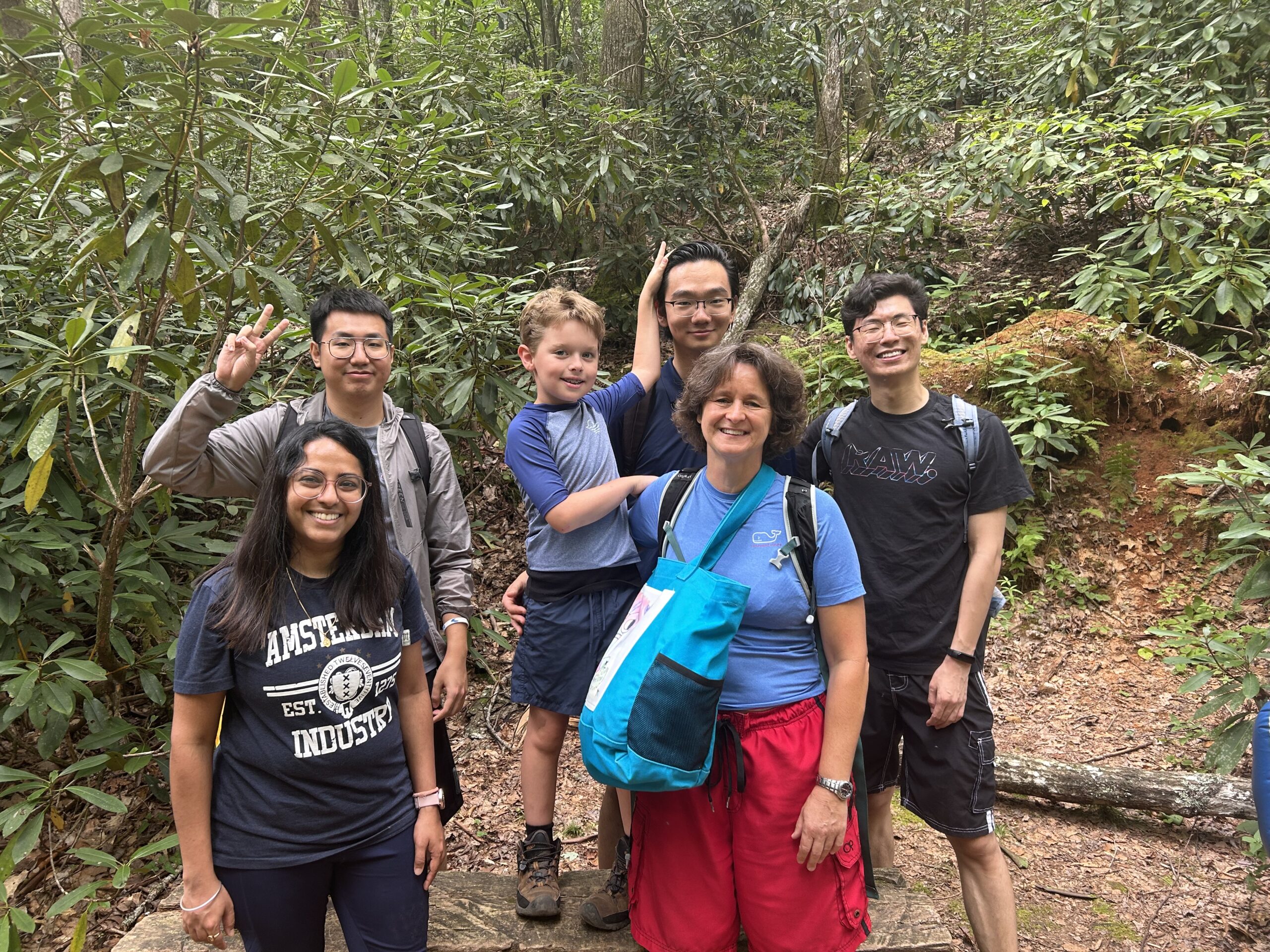 Storici Lab travel day, Fall 2023
Storici Lab travel day, Fall 2023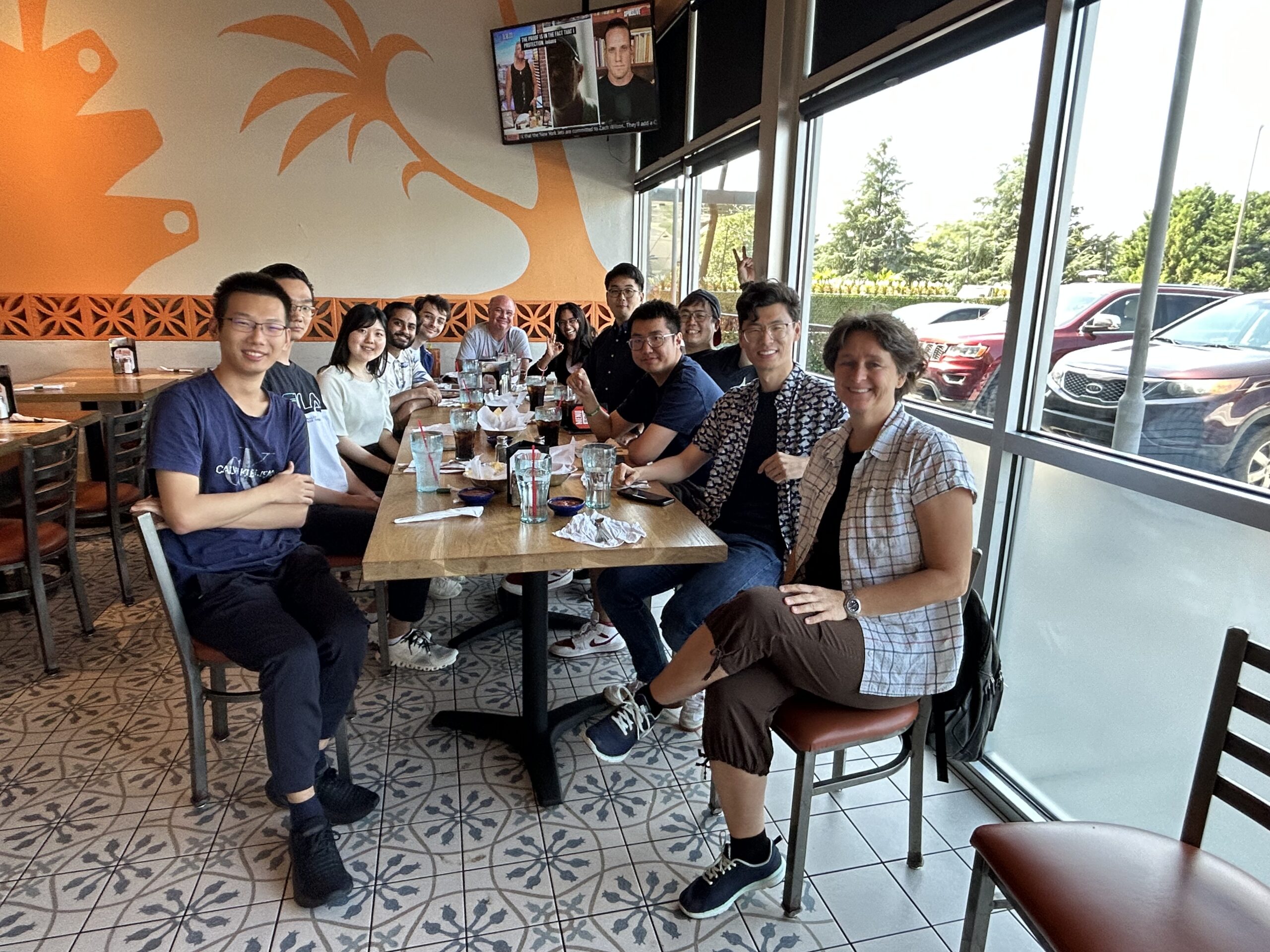 Lab lunch, Fall 2023
Lab lunch, Fall 2023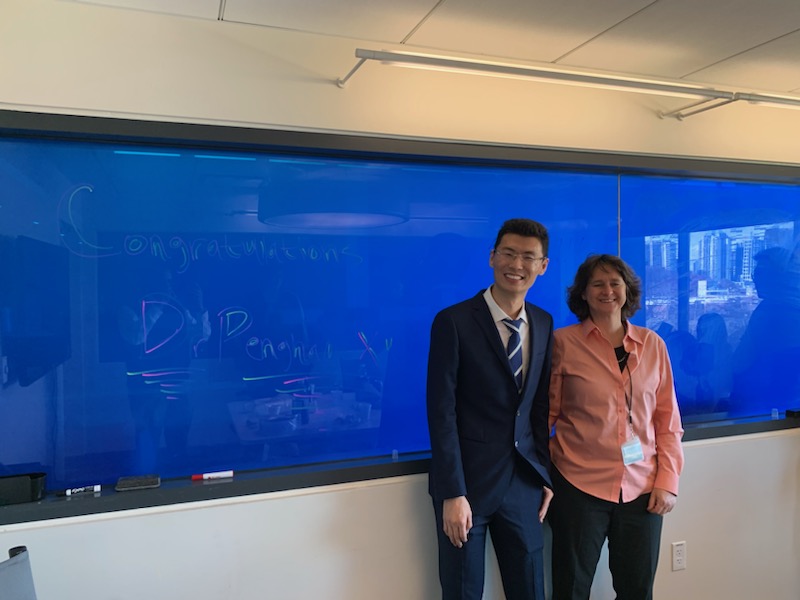 Congratulations, Dr. Penghao Xu!!!
Congratulations, Dr. Penghao Xu!!!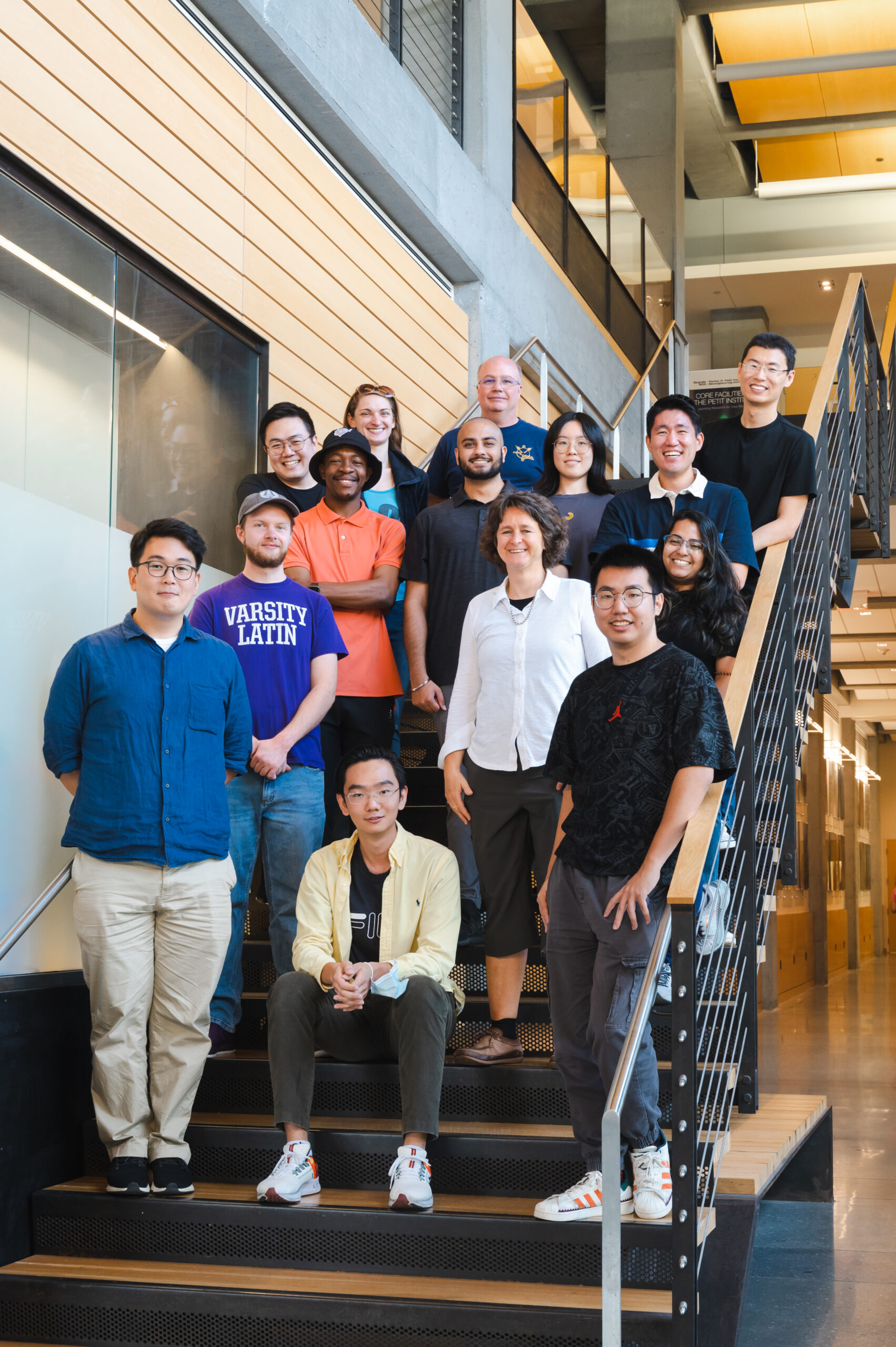 Storici Lab, Fall 2022
Storici Lab, Fall 2022
Research News
Follow our most recently news on Twitter !
11/2024
Storici Lab publishes paper in nature communications
Youngkyu and Yilin publish work on RNA-mediated double-strand break repair nature communications
06/2024
Storici Lab publishes paper in iScience
Deepali publishes work on rNMP features in Aicardi-Goutières syndrome ortholog mutants of Saccharomyces cerevisiae iScience
05/2024
Storici Lab publishes paper in Bioinformatics Advances
Mo publishes work on rNMPID database in Bioinformatics Advances
12/2023
Storici Lab publishes ribose-seq work in Nucleic Acids Research
Penghao and Taehwan publish work on rNMP incorporation in human mitochondria in Nucleic Acids Research
11/2023
Deepali wins the Mark Borodovsky Prize in the College of Sciences.
Deepali was recognized as the 2023 Outstanding Students in Bioinformatics at Georgia Tech and awarded the 2023 Mark Borodovsky Prize in the College of Sciences.
09/2023
Dr.Storici selected as Tom and Marie Patton Distinguished Professor.
Congrats to Francesca Storici for being named Tom and Marie Patton Distinguished Professor becase of excellent accomplishments in genome stability unveiling transcript RNA's roles in DNA repair and RNA bits' DNA-metabolism functions!
08/2022
Penghao wins the Mark Borodovsky Prize in the College of Sciences.
Penghao was recognized as the 2022 Outstanding Students in Bioinformatics at Georgia Tech and awarded the 2022 Mark Borodovsky Prize in the College of Sciences.
09/2021
New publications
Penghao publishes work on rNMP incorporation around autonomously replicating sequences in Nucleic Acids Research
Deepali publishes work on FeatureCorr bioinformatics package for sequencing and microarray data in Software Impacts
Alli publishes work on Ribose-Map bioinformatics toolkit in Software Impacts
08/2021
Penghao publishes work on RESCOT software for rNMP capture techniques in Theoretical Computer Science
07/2021
Our group has been awarded grants from the W.M. Keck Foundation and the G. Harold and Leila Y. Mathers Foundation: https://research.gatech.edu/new-grants-could-transform-scientists-understanding-dna
06/2021
2 postdoctoral positions available for Joint math-bio projects in collaboration with Prof. N. Jonoska.
These postdocs will be working under the guidance of Prof. N. Jonoska at the University of South Florida in the Mathematics Department on joint projects with Prof. F. Storici at the School of Biological Sciences at the Georgia Institute of Technology. The projects involve modeling as well as NGS data analysis of ribonucleotide incorporation in human genomic DNA and RNA:DNA hybrid involvement in DNA repair. For more information please visit:
https://knot.math.usf.edu/ (Prof. N. Jonoska)
https://storicilab.gatech.edu/ (Prof. F. Storici)
https://scmb.gatech.edu/ (Southeast Center for Mathematics and Biology)
The candidates should have a PhD degree in mathematical sciences or a related area at the time of the appointment. Experience in coding and/or analysis of large data sets are recommended. The positions are open starting from August 1st, 2021 and may be annually renewed up to three years.
For consideration please send a cover letter indicating interest in genomics studies, a cv, and three reference contacts to: jonoska@mail.usf.edu
For any questions please contact Prof. N. Jonoska at jonoska@mail.usf.edu or Prof. F. Storici storici@gatech.edu.
06/2020
Storici Lab publishes ribose-seq work in Nature Communications
Storici Lab publishes work on characterizing biological signatures of rNMP incorporation in yeast in the journal, Nature Communications (GT Research Horizons Article, Petit Institute Article).
08/2019
Alli Gombolay is awarded the ARCS Foundation Fellowship
Alli Gombolay was awarded the 2019-2020 Achievement Rewards for Academic Scientists Foundation Fellowship.
03/2019
Alli Gombolay is awarded the Larry O'Hara Fellowship
Alli Gombolay was selected for the 2019-20 Larry O'Hara Fellowship, which is awarded to top doctoral students in the College of Sciences.
09/2017
Havva Keskin begins post-doctoral fellowship
Havva has been awarded a post-doctoral fellowship at the Winship Cancer Institute of Emory University.
07/2017
Chance Meers wins award at 2017 FASEB Meeting
Chance received an award for his presentation at the 2017 FASEB meeting in Steamboat Springs, Colorado.
09/2016
Sathya Balachander wins RNA Society award at 2016 RNase H Meeting
Sathya received an RNA Society an award for his presentation on cellular processing of abasic ribonucleotides at the 2016 RNase H Meeting in Kyoto, Japan.
Francesca Storici selected as Howard Hughes Medical Institute Faculty Scholar
Associate Professor Francesca Storici is one of 84 scientists across the U.S. who were selected to receive this award supported by HHMI, the Simons Foundation, and the Bill & Melinda Gates Foundation. The award supports early career scientists who have the potential to make unique contributions to their field of research.
08/2016
Francesca Storici awarded 3 year NSF grant to study mechanisms of RNA-DNA recombination
Associate Professor Francesca Storici received a 3-year grant from the NSF to investigate the biological role of RNA in DNA repair and the conditions in which transcript RNA is a preferred template for DNA double-strand break repair. This study will provide new insight into the impact of RNA on genome maintenance.
Francesca Storici awarded 5 year NIH grant to study ribonucleotides in DNA
Associate Professor Francesca Storici (along with collaborators Dr. Fredrik Vannberg of the School of Biological Sciences and Dr. Gianluca Tell of the University of Udine in Italy) received a 5 year grant from the NIH to profile ribonucleotide incorporation in oxidatively stressed and cancer cells using the ribose-seq method.
07/2015
Francesca Storici Receives a 5 Year Grant from the National Institutes of Health
In July, Associate Professor Francesca Storici received a 5 year grant from the National Institutes of Health to investigate RNA-mediate DNA break repair. Breaks in both strands of the DNA double helix are one of the most harmful DNA lesions because if not properly repaired they lead to mutations, chromosome rearrangements or cell death. The safest way to repair a DNA double-strand break (DSB) is via homologous recombination (HR).
[custom-twitter-feeds feed=2]